
Fukuoka is the capital of its eponymous prefecture, located on the island of Kyushu in southwest Japan, and is the largest city in the region. Its location near the Asian mainland makes it a major port city. It is a dynamic city that is becoming increasingly popular among foreigners. How to find a job in Fukuoka? What are the most promising economic sectors?
Fukuoka: two names, one history
Modern Fukuoka is the fusion of two historical cities, Hakata and Fukuoka, between which flows the Nakagawa River. The discussions about the new city's name took a long time, and even today, there is still a lot of confusion.
The destiny of Hataka and Fukuoka during the Meiji era (1868–1912)
Everything started with the Meiji revolution (or restoration) in 1868. The Tokugawa shogunate (military government) was overthrown, and the emperor regained full power. This was the first step towards the foundation of modern Japan, which became more inclined towards the West.
Japan's modernization and change of name
The Meiji era was one of Japan's incredible political, economic, and social transformations. Changes significantly affected the country's administration, with a new territory partitioning system that produced prefectures, cities, and villages, established by law in 1888. This is how the government decided to merge Fukuoka and Hakata, but at that time, not everyone was happy about it.
This merger was seen as forcing at least one loser, and for a long time, Hakata refused to be the one that would drop its name. The debate fascinated the Japanese then, and in 1889, a decision was made! The newly merged cities were to be called Fukuoka from then on, and ever since, Hakata, at least as a city name, does not exist anymore.
The confusion lasted through ages, though, and even today, the name "Hakata" still resounds, namely with its train station, local gastronomy, dialect, and more.
Mapping Fukuoka
Some background information is needed before embarking on the complex (but not impossible) job search in Fukuoka.
Fukuoka Prefecture is located on the island of Kyushu, which is the actual spelling of Kyûshû. It is located South of Japan and has a population of 5.116 million in 2022, ranking Japan's 9th most crowded prefecture.
Its capital city, Fukuoka, boasts about 1.612 million souls in 2020 and sits West of the prefecture as the region's economic heart.
Major cities of Fukuoka
Nine other big cities contribute to the dynamism of the prefecture.
Kitakyûshû, in the extreme North ("kita" meaning "north"), is the second most populated city, with almost 940,000 inhabitants in 2020.
Kurume is in the South with slightly more than 300,000 inhabitants, Iizuka is in the northern half with 126,364 souls, and Omuta is in the extreme South with a population of 111,281.
Other cities in the center, like Kasuga, Chikushino, and Onojô, have populations ranging between 111,000 and 103,000 inhabitants.
At the same time, Itoshima, located in the West not far from Fukuoka, has 98,877 inhabitants, and Northwestern Munakata has a population of 97,095 (source: Statistics Bureau of Japan, 2020).
Foreigners in Fukuoka
You will come across very few foreigners in Fukuoka. The prefecture counted 86,000 foreigners in 2022 (out of 5.116 million), most of whom live in the capital city. However, the number of new immigrants is steadily increasing. Fukuoka has gained popularity in recent years, its geographical position at a strategic crossroads for international trade.
Reasons why you should work and live in Fukuoka?
It is always better to relocate with an unbiased understanding of the local context of your host country. Finding a job in Japan is difficult. Moreover, COVID and the resulting economic crisis have not made things any easier.
Nevertheless, the Fukuoka prefecture has kept investing in attracting foreign engineers, start-ups, investors, financiers, and creative people (especially in the video game industry), and thanks mainly to its airport, the prefecture is still very dynamic and open to international markets.
Fukuoka attracts many people and has the highest population growth rate among all Japanese cities. It is also ranked number one regarding the growth rate of foreign residents among all the designated cities. Despite the increasing population, the prices in Fukuoka remain affordable compared to other cities in Japan, and the startup incentives offered by the city make it a perfect location to establish a new company.
Based on the Retail Price Survey Report released by the Ministry of Internal Affairs and Communications, Fukuoka has been identified as the most affordable city among the 21 major cities in Japan, including ordinance-designated cities and Tokyo wards.
Immigrant communities in Fukuoka City
Being new to Fukuoka, you will surely want to expand your network. Check with immigrant and expatriate associations when settling in Fukuoka or looking for a job. With their offices based in the capital, the Japan America Society of Fukuoka, the Fukuoka Japan Australia Society, or the Fukuoka Japan British Society can help you in many ways.
Networking in Fukuoka
Obviously, you should avoid sticking only to the expat community. Assuming you intend to stay in Japan for a long time, mixing the best of both worlds would be best. You would not wish to live exclusively in a foreigners-only club.
Ideally, you should have a good command of the language before you arrive or learn it on the spot. Thus, you will have greater chances of finding the right job and will integrate more readily.
At the same time, while going abroad may seem daunting, especially when it is your first move, a community of foreigners can be reassuring and put you on the right track.
Getting integrated into Fukuoka
Founded in 2014, the Fukuoka City International Foundation promotes togetherness. It also aims to facilitate the integration of foreigners with activities like discovering the city and the prefecture, meeting with cultural associations, helping with administrative matters, etc. You can also adopt this approach for your job search in Fukuoka. Professional networks are far from the only ones that will open the doors to the job market. Informal networks are just as strong. Sports, reading, music, gardening, and drawing clubs, amongst others, will allow you to socialize with Japanese people, make friends, and build your own tiny "home" in Fukuoka.
Of course, you will not join a club only to show your CV to every person you meet. Your peers might feel like they're being used, and rightfully so. Make sure to distinguish between formal, active networks, such as professional networks, where everyone is there for a specific purpose, and informal, passive networks, where sharing and conviviality are the keys to making friends.
Kyushu's economy
The strategic importance of Kyushu
Kyushu Island is Japan's 4th economy, behind Kanto (propelled by Tokyo), Kansai (Osaka), and Chûbu (Nagoya). It accounts for about 10% of the country's total wealth in 2018. It is a dynamic region that benefits from the Kyushu Shinkansen, a high-speed train operated by three train companies, namely:
- Tsubame, which connects Hakata station, north of Kyushu, to Kagoshima, in the extreme South;
- Sakura that goes to Shin-Osaka station;
- Mizuho runs from Shin-Osaka to Kagoshima.
Thanks to the Shinkansen and its Kitakyushu, Fukuoka, Kyushu Saga, and Kumamoto airports, Kyushu is directly connected to the rest of Japan and to Southeast Asia, which favors economic exchanges with South Korea, China, and the countries of Southwest Asia.
Kyushu's leading economic sectors
Kyushu is a major center for automobile manufacturing in Japan, producing over 1.5 million units. It contributes about 15% to the country's total production. The region is home to more than 1,200 auto-related companies, making it a key player in the automotive industry.
Kyushu has also become a hub for environmental recycling and renewable energy companies. With a history of tackling pollution challenges, the region has focused on developing technologies for recycling soil and purifying water. It has abundant renewable energy resources like solar and geothermal power, making it a leading area in the energy sector. Moreover, Kyushu has expanded its environmental technologies to other countries, especially in Asia.
In addition, Kyushu is known for its biotechnology, medical equipment, and cosmetics-related institutions. The region has a strong presence in traditional fermentation industries like miso, soy sauce, and shochu. It is also home to many biotechnology companies, universities, and research institutes in the health food industry. Collaborative efforts between industry, academia, and government are underway in the Higashi Kyushu Medical Valley to develop and commercialize new medical devices. Karatsu City in Saga Prefecture actively promotes the concentration of cosmetics-related industries through partnerships with overseas entities.
Kyushu has earned the nickname "Silicon Island" since its significant contribution to high-value-added semiconductor production since the 1970s. The region accounts for around 44% of the national total, with a semiconductor production value of 764 billion yen. Kyushu is home to over 1,000 semiconductor companies, solidifying its position as a major player in the semiconductor industry (source: Business and Investment Environment in Kyushu).
The economy of Fukuoka Prefecture
Thanks to the port of Hakata, Fukuoka Prefecture plays a major role in import–export in Japan. In September 2023, Fukuoka had a trade surplus of ¥383B. This prefecture exported ¥711B and imported ¥327B, making it the 6th largest exporter and 7th largest importer in the country. From September 2022 to September 2023, Fukuoka's exports grew by ¥34.9B (5.17%), going from ¥676B to ¥711B.
In 2022, Fukuoka's main export destinations were China (¥ 1.69T), South Korea (¥ 1T), the United States (¥ 878B), Taiwan (¥ 473B), and Hong Kong (¥ 366B).
The top exports from Fukuoka included electronic integrated circuits, medium-sized cars, spark-ignition non-chargeable cars, large-sized cars, and small-sized cars.
When it comes to import origins, Fukuoka's top partners were China (¥ 1.13T), Taiwan (¥ 521B), Australia (¥ 313B), South Korea (¥ 216B), and Indonesia (¥ 206B).
The leading imports to Fukuoka consisted of electronic integrated circuits, bituminous coal, not agglomerated, natural gas, liquefied, commodities not specified according to kind, and ignition/other wiring sets for vehicles/aircraft/ships.
The economy of Fukuoka City
The city of Fukuoka aims to attract more and more IT, engineering, and human resources companies. Its objective is to develop its "Engineer Friendly City Fukuoka" ecosystem.
Fukuoka is also ahead of its time. It has supported startups since 2012 and is establishing itself as an innovation powerhouse.
In 2019, the combined nominal gross regional product of the seven prefectures in Kyushu and Okinawa Prefecture amounted to ¥52.9 trillion. Conversely, Fukuoka City's gross city product stood at 7,842.6 billion yen, accounting for 14.8% of the total gross regional product of the seven prefectures in Kyushu and Okinawa (source: Fukuoka leap-up).
In 2020, it was the only city to be selected by the Japanese government to be a "global core city" and is accelerating support for startup creation and development.
Main notable projects in Fukuoka City in 2024
Together with the following major projects, we can expect a vibrant job market for Japanese residents and foreigners in Fukuoka City in 2024.
January 2024: "Risunoko Square", a bustling center with medical and nursing care services at its core, was established on the former site of Sunoko Elementary School;
March 2024:
- "Connect Square Hakata", an innovative 12-story building, is completed on the former Fukuoka Higashi General Government Building site,
- Marine World Uminonakamichi opens "Penguin Beach" and "Island Stage";
April 2024:
- "Meinohama STEPS", a commercial complex that proposes a lifestyle, opens south of Meinohama Station,
- "Bilingual Childcare Facility" to be established in Island City;
June 2024: The eight-story Fukuoka branch building currently being constructed by Iyo Bank in Hakata Ekimae 2-chome has been completed;
Autumn 2024: A new control tower with a height of 94.2 meters, the second tallest in Japan, will be completed on the international terminal side of Fukuoka Airport;
November 2024: Access Hall, a dedicated road for inner-city buses at Fukuoka Airport, is scheduled for completion;
December 2024:
- Hulic Fukuoka Building (tentative name), a hotel, office, and commercial facility, is completed along Meiji Dori,
- "Fuku Building Block Reconstruction Project", a large complex building, is scheduled to be completed on the Fukuoka Building - Tenjin Core - Tenjin Vivre site (source: Fukuoka City changes in 2024).
Fukuoka city: A new Eldorado for startups?
The year 2017 saw the launch of Fukuoka Growth Next (FGN), whose motto aligns with the city's pro-startup policy: "From Fukuoka to the World to the next future". The FGN program is betting on the future by establishing public–private partnerships to encourage the creation of start-ups with premises, infrastructure, and more.
It also promotes meetings among professionals thanks to the creation of the STARTUP CAFE, a place for exchange and counseling with international exposure. Business creation, job creation, visas, Fukuoka's economy, and the global market are among the topics discussed by experts there.
Regarding the Startup Visa (Foreign Entrepreneurship Promotion Project), since November 19, 2023, Fukuoka has been the first city to allow foreign entrepreneurs to reside in Japan for one year.
Recruitment of highly skilled foreigners
One of the most difficult visas to obtain is the "highly skilled professional" visa. It is also the one that offers the most benefits. Fukuoka City is committed to attracting foreign talent and making it easier for them to obtain residency. As such, it awards extra points to all talent who work at a company it subsidizes.
Jobs in video games
Fukuoka is also an excellent city for creation and animation through the Fukuoka Game Promotion Industry Agency and CreativeLab Fukuoka. It is particularly active in video game production.
Fukuoka is home to two world-class Japanese companies: CyberConnect2 and LEVEL-5. The latter has established its worldwide reputation thanks to adopting licenses such as Inazuma Eleven, Yokai Watch, Professor Layton, and Dragon Quest.
CyberConnect2 is recruiting
CyberConnect2 is known worldwide for its adaptations of successful licenses like JoJo's Bizarre Adventure, Dragon Ball, Naruto, and Demon Slayer, amongst many others. The studio recently returned to its roots by creating the game Fuga, Melodies of Steel, and as such, is currently in the midst of a recruitment campaign.
Its founder, Hiroshi Matsuyama, was in Paris in July 2022 to pitch his campaign on the occasion of the Japan Expo, the first festival in France dedicated to Japanese pop culture and arts.
CyberConnect2 is recruiting game designers, level designers, model artists, and character animators (the complete list is in the useful links at the end of the article). It is possible to apply even if you don't speak Japanese. Language training is planned on the spot.
Many foreigners work in their Fukuoka or Tokyo offices, and interviews are possible via Skype for those who are not yet in Japan. Committed to the fight against discrimination, CyberConnect2 offers expatriate recruits a training program beyond Japanese language courses. It helps them with their administrative formalities, settling in, etc. (source: https://www.cc2.co.jp/recruit/global/).
Engineering, creation, development, consulting, IT…
Fukuoka wants to become the reference for engineers. Several startups and companies, such as KOALA Tech Japan, an innovative startup, and Chaintope, a company specializing in blockchain for cryptocurrencies, have chosen to set up there, just like retail giant Rakuten.
Large companies in Fukuoka Prefecture
Fukuoka is home to over 400 international companies, such as the renowned German automotive design company EDAG and Fresenius Medical Care.
Additionally, several notable Japanese companies operate in the region, including Toyota Motor Kyushu, Inc., Toto Ltd., Yaskawa Electric Corporation, Nissan Shatai Kyushu Co., Ltd., Mitsui High-Tec, Inc., and many more.
How to find a job in Fukuoka?
Job search and personal situation
If you are a student or a Japanese Working Holiday Visa holder looking for a small job, you won't need an extensive CV, but it will still be crucial. As such, you can get jobs in restaurants, hotels, entertainment (amusement parks, etc.), sharehouses, and sales (work in minimarkets).
The Work visa
This type of visa is sponsored by employers and corresponds to a long-term position. Unlike a standard job, which is easier to find (even if offers have become scarcer with COVID), the "fixed-term" job is more complicated. You'll have a better chance of finding a job if you're an engineer, researcher, startup, video game, or healthcare professional. You will have even more opportunities if you speak Japanese. Don't skip out on learning the language.
Where to look for job offers in Fukuoka
General job websites in Japanese and English, specialized websites according to sectors, Chambers of Industry and Commerce, Japanese and international professional networks, word-of-mouth, informal circles of acquaintance, universities and language schools, newspapers specialized in job search (available in train and subway stations), are all very good ways of looking for jobs in Fukuoka. Here again, speaking Japanese will give you access to more job offers.
Tips for working in Fukuoka
The city of Fukuoka is dynamic and continuously evolving. Be curious, open-minded, and prepared to challenge yourself. You won't be 100% functional during the first months of your stay. Don't panic; take the time to rediscover yourself in this particular context, and always remember that living in a new country is an ongoing learning process.
Take the time to gather all the necessary information about Japan and your relocation to Fukuoka. What are the labor laws? Do you need specific diplomas to work in Japan? Is there a union?
If you obtained the job in your own country, congratulations! Try, however, to be in Japan a few weeks before you start working for the company, especially if it is your first move abroad.
In case of personal issues like culture shock or homesickness, for example, do not hesitate to seek help. Talk with other people who have also been looking for a job in Fukuoka and/or go out and talk with friends. Engage in different activities, release the pressure, and see a doctor if the problem persists.
If you are already in Fukuoka, explore the city and its surroundings. Get acquainted with your new neighborhood, and learn about the city's history. Take an interest in its cultural associations. Practice your hobbies and discover new activities. This will help you to integrate better.
Useful links:
Engineer Friendly City Fukuoka
Fukuoka Chamber of Commerce and Industry
Discover life in Fukuoka:
Immigrant communities in Fukuoka City:
The Japan America Society of Fukuoka
Fukuoka City International Foundation
We do our best to provide accurate and up to date information. However, if you have noticed any inaccuracies in this article, please let us know in the comments section below.
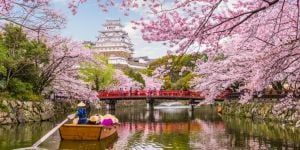

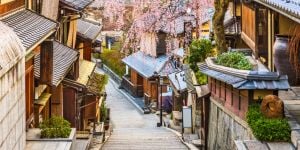
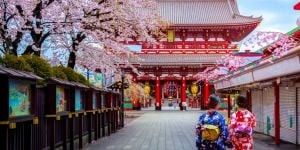


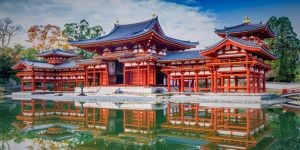
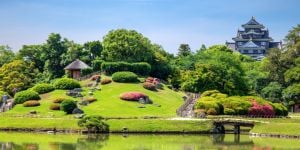




Comments